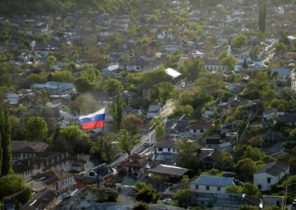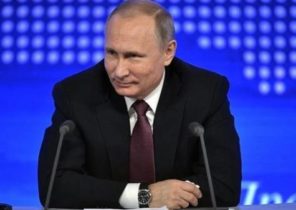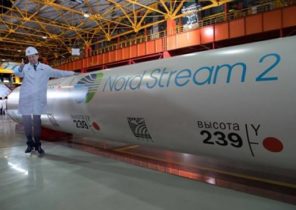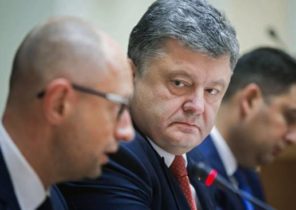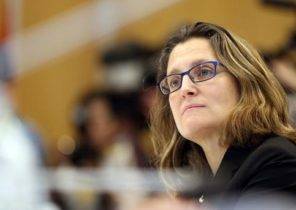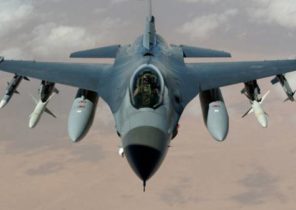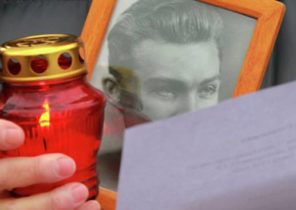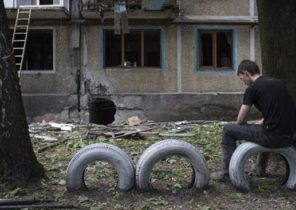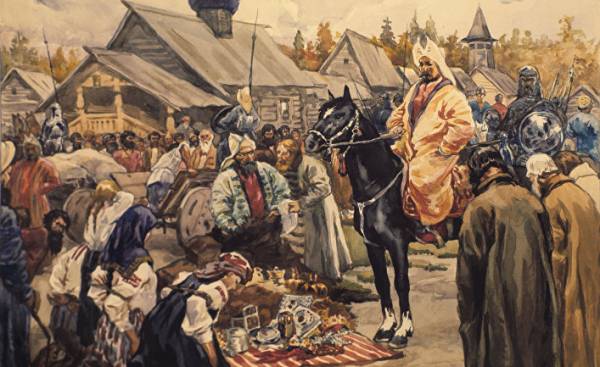
515 years ago the Crimean Tatars finally destroyed the Golden Horde. It lasted for nearly 300 years, and in a certain period directly or indirectly controlled the entire territory of Ukraine, if you believe historical atlases. On the Golden Horde, its heritage and the role it played in the history of Ukraine, Radio Svoboda spoke with Ukrainian historian Boris Cherkas.
Radio Liberty: the Conquerors, who were called Tartars, have created a very large Empire. So they were such successful conquerors? At the time, said that there were many, but recent historical research suggests that it is not. Then it was not so effective logistical service to this army to feed. Thanks to the relatively small people gathered around other people and effectively conquered territory?
Boris Cherkas: Here the truth is somewhere in the middle. The uniqueness of the Mongols that Genghis Khan managed to unite them around himself. He managed to take in the circumstances on the arms of the Chinese system and Chinese experts in the civil and military offices, as well as Chinese industry began to supply them with weapons.
Cutting — edge technology.
Yes. They also owned the Central Asian technology.
— So they still had many of them?
— Let’s just say for right sector of the front they were able to create an advantage. For the Middle ages it was unique because the then army could not act at large distances, and the Mongols could quickly assemble troops and to deploy at a great distance. “Team driven” and the army of the Mongols was well managed, was enough officers. Due to the amount of these factors, they won.
— Quote from the times which is worth paying attention to. After the Golden Horde conquered the Kingdom of Galicia-Volhynia, Danylo Galitsky said that “meaner evil Tatar honor”. On the one hand, he was given some honor, and with another — she’s the worst evil. What does it mean?
— Let’s just figure out where the border. The border was where the Empire had its officials. If we take Ukraine, then part of the Mongol Empire, and later of the ulus of Jochi was part of the Kyiv, Chernihiv, Pereyaslav, the entire left-Bank and steppe Ukraine. Galicia, Volyn and Transcarpathia was never part of the Golden Horde.
What still meant the shortcut that Danilo Galitsky received from the Khan?
— At the time when the rules of Danilo Galitsky, the Supreme Hagan was Hagan, who lived in the Karakorum, in Mongolia. And Rurik princes went to Mongolia. And Danilo traveled to Mongolia, to the border from the point of view of the Mongol Empire, Batu Khan. It was a trip not to recognition of his citizenship, in the sense that he as a border neighbor is forced to admit some things. At least he protected the borders of his state from the Mongol attacks.
But he is actually the Galician-Volyn king. With the permission of the Pope and the Patriarch of Constantinople, Danilo took the crown and the state legally in the XIII-XIV centuries was called the Russian Kingdom. He was a Russian king, which technically, from the point of view of European law, had to obey Kiev, Chernigov, and other lands.
— So what he was “angrier evil Tatar honor”?
— The fact that this phrase is taken from the Chronicles. Most of the records we have today is the so-called chronicle of the Moscow loop, because that’s where they remained. The only Record not in Moscow — the so-called Galicia-Volyn chronicle. Say so-called because it is the name historians: this refers to where they were written. Interestingly, in all Moscow Chronicles the invasion of the Mongols are not perceived as a tragedy. On the contrary, there is a phrase: “it to us for our sins”, “need”, “come the great king.” The only record that recognizes this tragedy — the Galicia-Volyn chronicle.
This is a very interesting point, studied by historians: when going Vladimir and Prince of Moscow to the Horde is an honor. If traveling Prince Danilo or his brother Vasilko is not honor. This reflects the status of each ethnic group to those events.
— My son Daniel the Lion has not had such anti-Tatar sentences — it is with the help of the Tatars did Hiking and Hungary, and Poland.
We know about the lion from the same Galician-Volyn chronicle, but in the days of Leo he had not written to them, and chronicler of the environment of his cousin. Leo was a realist: he ruled Galicia, and the trade route was going through Moldova, which at that time controlled the leg. The lion was forced to find Leg a common language. It wasn’t cooperation from the perspective of the slave-master, it was a good neighborhood. It is necessary to distinguish the tribute paid by Kiev, — it really was a tax from the pay of Galicia-Volyn Principality. They were not part of this state, and paid in neighbouring countries. But paid also Hungary paid the Turks and Tatars the Byzantine Empire. You said that the Byzantium was part of the States? I had to do it because there were two choices: either keep a large army on the border to repel attacks, or to pay the money and be quiet.
— You mentioned about Russian history that there’s sort of normally perceived the Tatar-Mongol invasion. But in the Soviet school was talking about Tatar-Mongol yoke. It is perceived as something very negative and all the ancient history was represented as a consistent struggle for liberation from this yoke.
— This is a very common myth. The main myth — 200 years of the Tatar yoke in Russia. I would like to remind that Russia — the Chernigov, Kiev, Pereiaslav. Here, the Horde was led by only 120 years. We can already see that is not the whole territory of Ukraine, and we are not talking about 200 years.
If we take into account it to land in Moscow, I can say that the objective of the Moscow Principality was created by the great Khan Tokhtamysh. Indeed, he burned Moscow, but he carried out reforms according to which it is the princes of Moscow, while the descendants ruled by Tokhtamysh of the Golden Horde, the great Prince. And on the coins of Moscow “about the money” — was the name of the great Khan Tokhtamysh.
But for half a century before, the lands around Moscow began to collect Prince Ivan Kalita.
— Yes, he was a bright person, he helped the Mongols to destroy Tver. But have in mind that is a legally enshrined status of Moscow.
— We have two Russian concept of the Golden Horde: the so-called “egocentrism” — on a consistent struggle against the Tatar-Mongol invaders and also the concept that says that was not the oppressors, that it was a mutually beneficial symbiosis that helped to unite the Northern principalities into a single state. What is the vision of the role of the Golden Horde in Ukrainian history?
The princes of Vladimir and Suzdal perceived the arrival of the Mongols as a positive, because it is thanks to the Mongols, they became the Grand Dukes. Here is an important ethnic point: North is the Finno-Ugric peoples, conquered by Rurik, with elements of the Slavs. What’s the difference, by and large, who governs them: the Rurik dynasty or Genghis Khan?
In Ukraine the ethnic population — Ukrainians, so for them it is — the arrival of the foreigners, invaders. In Kiev, the princes removed, the Metropolitan was transferred to Russia, the capital of the Chernigov Principality of Chernigov transferred to Bryansk, Pereyaslavl diocese make of Sarai, and she becomes the main diocese the whole of the Golden Horde. Now the diocese is called Kazan. It is clear that such losses to the Ukrainians was a tragedy.
Listener question: “did Danilo Galitsky chances of victory in the struggle with the Tatars? And another question: as Mr. historian can appreciate the battle of Blue Waters? Was it really such a good thing for Ukraine?”.
— Danilo Galitsky would have a chance if the Mongol Empire began to disintegrate, as in his time the Empire of Alexander the Great. However, the Empire of the Mongols at that time were powerful, they carried out some internal reforms that have contributed to integrity. Therefore, the Ulus of Jochi raised an army and counterattacked. Daniel at that time had no chance — he was forced to retreat.
— Actually, Blue Water — Lithuanians defeated the Tatars, due to this, the Duchy has secured a large area of present-day Ukraine. But can this be considered a Ukrainian victory?
— When we say “Lithuanians”, then a few sovremenie. Actually, it came a new dynasty of the Gediminids. If we look closely, they were not so much tied to Lithuania. To some extent, the Gediminids was a classic continuation drevneruskogo period. And the battle of Blue Waters really led to the liberation from under the yoke of the Horde.
Listener question: “I have formed the opinion that there persists another myth that the United Orthodox Kievan Rus. As for me, this yoke was more a unifying factor. How do you assess the behavior of the Church during this period of enslavement? Because the Church ruled service for the health of the Khan”.
— Indeed, the Church has become a mechanism of enslavement. You have to understand, it wasn’t national, it was a Byzantine Greek Church. Most of these metropolitans and Church of the machine — came from Constantinople. The Mongols also gave them the right to tithes. Indeed, the clergy played a major role. So they then moved North, it was easier to manage. And that United Orthodox Kievan Rus is a subject of another story.
We remembered Sinevodskoy battle. But there was another battle of the Vorskla river, when the great Duke of Lithuania Vytautas tried the Golden Horde to subjugate. Why would he do that?
— Before the battle of the Vorskla river in Kiev fled the Golden Horde Khan Tokhtamysh. He asked Vytautas, who was then here rules help. He gathered an army of Lithuanians, Ukrainians, Belarusians, Germans, poles, Moldovans… Tokhtamysh, as one of the leaders of the campaign, went to the Barn with the goal of becoming the great Khan. For this he was given legal act, which refused to Ukraine in favor of Vytautas. They went in the direction of the upper reaches of the Vorskla, next to the modern city of Slavyansk, on the Bakhmut and the Barn. But on the Vorskla river they were stopped — there was a battle that they lost. After the battle, the Horde trying to reclaim land that they lost before, but Kiev has reflected these assaults — on castle hill survived.
— Who was the heir to the Golden Horde? It is logical that it was the Crimean Khan. At the same time the rulers in Moscow, too, justified his kingship is not only a reference to the Byzantine heritage but the fact that they conquered the Kingdom of Kazan, Astrakhan, Siberia… I mean, they had the right to be called kings.
Each considered himself a descendant. From the point of view of dynasty, the direct heirs were the Crimean xanat, xanat Kazan, Astrakhan, Nogai and Zavolzhskaya Horde. And a little bit of indirectly the rulers in Moscow. They had some connection — in the time of Uzbek Khan, one of his daughters was married to the Prince of Moscow. This side branch, but technically she played a role. Because when the great Principality of Moscow conquered Kazan, that just made Ivan the terrible? Declared himself king.
The steppe Empire between the Danube and the Irtysh
The Golden Horde — under this name entered the history of the state, created in the first half of the XIII century the descendants of the great conqueror Genghis Khan — his eldest son Jochi and grandson Batu. Ulus Jochi — so initially it was called public education — occupied the vast steppe areas of Eastern Europe, Central Asia and Western Siberia — from the Danube in the West to the Irtysh in the East.
Russian princes of the Rurik dynasty recognized the supremacy of the rulers of the Golden Horde and paid tribute to them.
First, the Ulus of Jochi differed atypical for its time tolerance. According to the memoirs of the then city, the city of Saray on the Volga — the capital of the steppe Empire was very large and quite comfortable.
In the second half of XIV century the Golden Horde experienced a deep political crisis, known in the Chronicles as “Great zamyatnya” when for 20 years there have been 25 governors. And soon the fatal blow, she struck the Central Asian ruler Tamerlane: after defeating the Golden Horde army, he to the ground destroyed a Barn and other cities. So began a long process of collapse of the steppe Empire and the beginning of the XVI century the Crimean khans finally finished off the Golden Horde.
